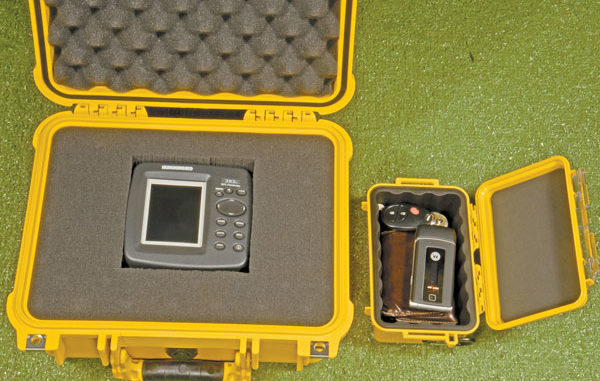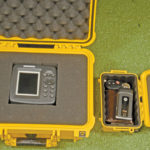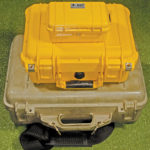
There is a list of risks I won’t take with my electronics, and it starts with leaving them installed while trailering to and from the launching ramp. I started removing my fishfinders back in the days when a paper chart recorder weighed about 8 pounds and a friend at a repair center warned me that neither the units nor their mounting systems were designed to take the kind of shock loads they can get while trailering down a pot-holed highway.
Today, units are often lighter and many are installed using rubber-jointed mounting systems like those from R.A.M. that can absorb enough shock and vibration to prevent that kind of damage. Unfortunately, there are other threats just as lethal.
Do you leave your units installed while you stop for gas, bait, lunch or coffee? If you walk away from your boat for more than a couple of minutes, your electronics may not be there when you get back. Removing your units and locking them up is the best way to theft-proof them.
Hostile tree branches can reach out from the edges of secondary roads and launching ramp accesses and smack your electronics and their wiring like clubs, especially when some yahoo decides to take his half of the road out of the middle and you have to crowd the ditch to dodge him.
Speaking of roads, the tires on vehicles around you can launch all sorts of missiles at your units. Have you noticed that you are almost never out of sight of a chunk of shredded, steel-reinforced 18-wheeler tire lying on and alongside our highways? You expect windshield chips and potential boat damage if you follow too closely on a gravel road, and your boat is always following your tow vehicle closely. Even on a paved highway you can be pelted by stones that were stuck in a tire’s tread and weren’t thrown free until it speeded up to pass you. Then, there are those weird hailstorms we get in the South and, well, you get the picture.
Some of these unhappy events are also on the list of reasons I don’t flush mount my electronics. Sure, they have that cool built-in, original-equipment look and they are difficult to steal while stuck there in a console or on the inside of the bow gunwale up front. But they collect rain and spray like small swimming pools; take rough water pounding and trailering shocks directly with no rubber cushioning; you can’t tilt them when necessary to see them; the next units you trade up to won’t fit in the same holes; and you can’t take them off while you are trailering.
So, how can we protect our electronics while traveling? I have seen some units in need of repair after owners wrapped them in a life jacket and stuffed them in a storage compartment. Some unwrapped themselves and hammered a bit too hard against the inside wall of the compartment while going down the road.
In another case a hard-plastic fitting on a PFD scratched a unique, but less than attractive, design on the plastic lens over the unit’s screen. Anything that hits or presses hard against an LCD screen can damage pixels at the point of contact. Those pixels may stay dark or never darken again, depending on how Murphy decides to apply his law that day.
I have tried various protective methods, but none have worked as well as treating my electronics like I treat my cameras and sensitive shooting electronics. I put them in waterproof, shock-proof cases built with O-ring sealed lids and lined with pluck-and-pull foam that can be custom-plucked to support my stuff perfectly.
Smaller cases will easily carry one compact fishfinder or sonar/GPS combo unit, and larger units will fit in larger cases. Pelican Products (www.pelican.com), for instance, offers cases in 40 sizes including some big enough to carry a pair of units. These rugged cases last practically forever, and you can recycle them as your equipment changes.
I still use the first Pelican case that I bought for my cameras more than 30 years ago. I ordered a new interior foam kit, and it now protects the chronograph that measures the velocity of my reloaded bullets. Locked under a cover in the back of my pickup bed, these cases have kept my electronics clean, dry and undamaged while traveling on rough roads as fast as I deemed it safe to pull the boat.
I even use a mini-case to keep my cell phone, truck keys (with remote) and wallet safe and dry when I suspect the rest of me is going to get soaked. The little cases also float, and I prefer those in a bright yellow color that I can see on the water at long distances.
These cases can provide a lifetime of protection for all the electronics you will buy, and mean one less (big) thing for you to worry about. Pelican and other cases can be found online and at camera and sporting goods stores across the country.




